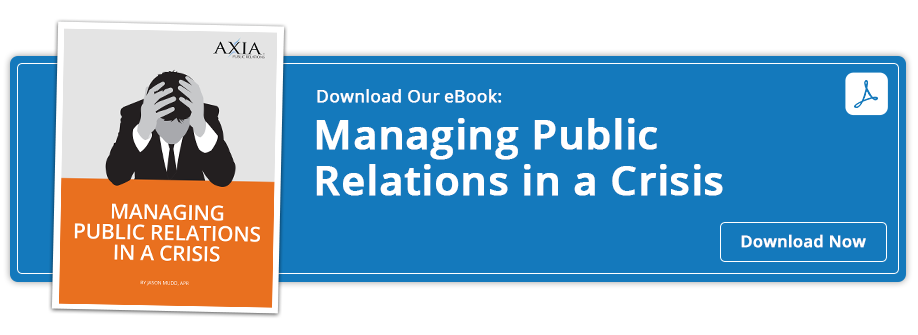 5 situations when you may not want your CEO to be your spokesperson
5 situations when you may not want your CEO to be your spokesperson
Steve Jobs said, “Great things in business are never done by one person. They are done by a team of people.” This begs the question of whether your CEO must always handle spokesperson duties. No one has more influence on what happens at your organization than the CEO. However, does that mean no one else can speak on your company’s behalf? When you learn more about the importance of the spokesperson role, you can better decide who it should be.
Here are five scenarios when you may not want your CEO as the spokesperson:
- During a crisis.
When tragedy or misfortune strikes your company, customers may naturally want to hear information from the top. If you use your CEO at the beginning of a crisis, you have nowhere to go if things get worse. And, you don’t want your CEO to be only associated with bad news about your company. Using your CEO too much could also dilute his or her impact on the public.
- When he or she is simply not good at it.
While your CEO might be a powerhouse when it comes to speaking to board members or investors, this skill does not always translate to speaking to media or giving speeches. There will be times when a spokesperson must show empathy, have an expert understanding of every aspect of the organization and be able to connect with the audience – all at the same time. Some people just don’t have what it takes to be cool, calm and collected in every situation. This doesn’t mean that you should hide your CEO, just use him or her in a different capacity.
- If others are more qualified.
You don’t ever want your spokesperson to appear confused or unsure. This is especially true when the spokesperson is the CEO. Depending on the circumstances, sometimes you need expert information. For instance, if there is good news to share about the design of a new product or if there is an unfortunate IT malfunction, an engineer or IT director may be better equipped to answer related questions.
- In situations when you require more than one spokesperson.
Sometimes, an issue is so huge it calls for a team of spokespeople. For example, if the issue affects multiple geographical areas or the spokesperson will need to be in the public eye for several days, you might have to bring in reinforcements.
When your company has many locations, a local spokesperson may be able to better relate to customers in each area. During the BP oil spill, the company brought out employees familiar with the Gulf Coast area to speak with affected residents.
- If your CEO has not received spokesperson training in advance.
No matter who goes in front of the microphone on behalf of your company, it is vital for that person to have comprehensive training. After all, it’s only your entire reputation on the line.
Trust the professionals at Axia Public Relations to get your CEO and other key executives properly trained with interview and media relations skills. Contact us or download our e-book Managing Public Relations in a Crisis to learn more.
 Lisa Goldsberry is a blogger for Axia Public Relations with more than 15 years of public relations experience. She specializes in business and technology PR. Lisa has worked for Axia since December 2013. Learn more about Lisa Goldsberry. Connect with Axia on Twitter @axiapr or tell us what you think in the comments below.
Lisa Goldsberry is a blogger for Axia Public Relations with more than 15 years of public relations experience. She specializes in business and technology PR. Lisa has worked for Axia since December 2013. Learn more about Lisa Goldsberry. Connect with Axia on Twitter @axiapr or tell us what you think in the comments below.
Featured image credit: 123rf.com
Topics: public relations, spokesperson training



Comment on This Article